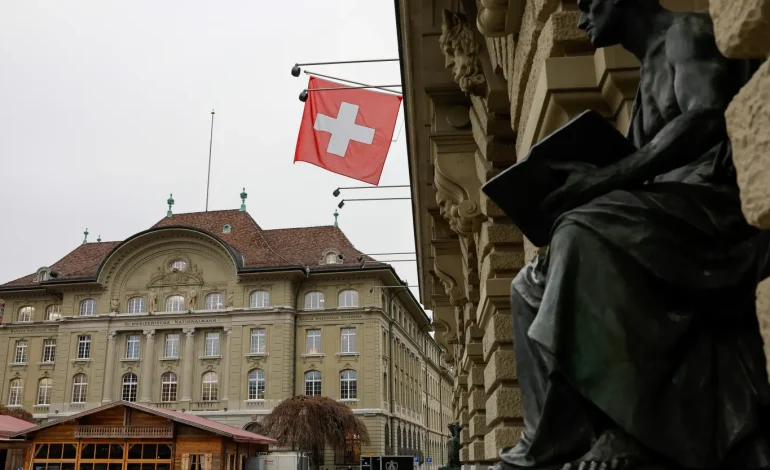The Swiss National Bank (SNB) has lowered its key interest rate by 25 basis points to 0%, signaling a new phase in its monetary policy and raising questions about the potential return of negative rates in Switzerland.
The decision, announced Thursday, was widely anticipated by financial markets. Traders had placed an 81% probability on a quarter-point cut and a 19% chance of a larger 50-point reduction. The move comes as Switzerland faces deflationary pressure, with consumer prices falling by 0.1% in May compared to the previous year.
“In today’s environment, inflationary pressure has decreased compared to the previous quarter,” the SNB said in a statement. “With today’s easing of monetary policy, the SNB is countering the lower inflationary pressure.”
The central bank also lowered its inflation forecasts, projecting inflation to average just 0.2% in 2025 and 0.5% in 2026. It emphasized, however, that its focus remains on maintaining medium-term price stability and that it will continue monitoring economic developments closely.
Unlike many countries still grappling with persistent inflation, Switzerland is experiencing deflation. A significant driver is the strong Swiss franc, which has appreciated amid global economic uncertainty and geopolitical tensions. As a result, the cost of imported goods has decreased, putting downward pressure on prices.
Charlotte de Montpellier, senior economist at ING, noted that Switzerland’s status as a safe-haven economy causes the franc to strengthen during times of global stress.
“This systematically pushes down the price of imported products,” she said.
To mitigate the franc’s strength, the SNB is maintaining interest rates below those of other advanced economies. Still, the franc briefly strengthened after the announcement, with the US dollar trading flat against it.
SNB Chairman Martin Schlegel told CNBC that while the central bank isn’t currently planning to reintroduce negative rates, such a move cannot be ruled out if economic conditions change.
“Going negative we would not take this decision lightly,” Schlegel said, adding that the threshold for such a step is high.
In the past, Switzerland has operated with negative interest rates as low as -0.75%. Some economists, including Adrian Prettejohn of Capital Economics, suggest that if inflationary pressures remain subdued, the SNB might return to negative territory later this year.
However, such a policy is not without its challenges. Critics argue that negative rates can distort financial markets, reduce bank profitability, and erode returns for savers.
The SNB’s decision contrasts with other central banks, such as the US Federal Reserve, which held interest rates steady this week amid concerns over persistent inflation and potential geopolitical disruptions. Switzerland’s economy, by contrast, is being shaped by low price growth, a strong export sector, and global uncertainty.
The SNB noted that recent economic strength in the first quarter was partly driven by Swiss exporters accelerating shipments to the US in anticipation of possible tariffs. However, the bank expects global growth to weaken in the coming months.
In the near term, the SNB projects subdued inflation and modest economic activity. Its next policy meeting is scheduled for September, when it may reassess its stance based on global and domestic conditions.
CNBC and the Associated Press contributed to this report.










The latest news in your social feeds
Subscribe to our social media platforms to stay tuned